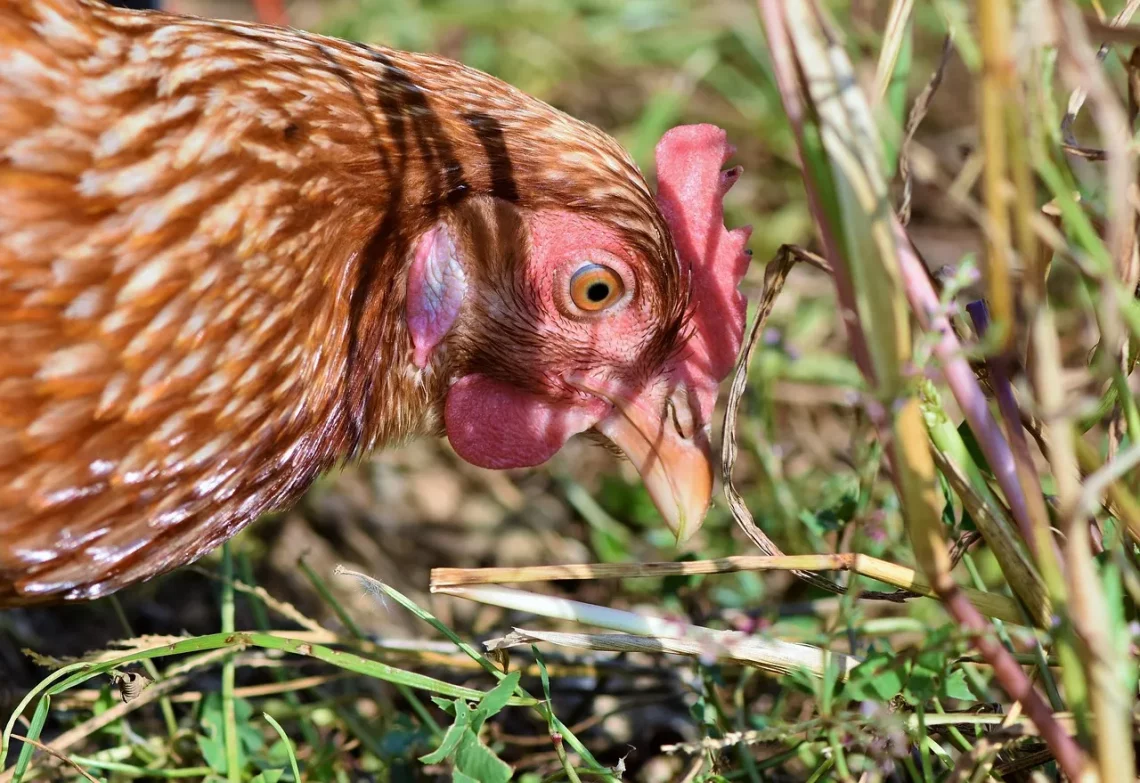
Can Chickens Have Beets? A Guide to Feeding Your Flock
Chickens are not just simple farm animals; they are remarkable creatures with unique dietary needs. As poultry enthusiasts and backyard farmers look for ways to enhance their flocks’ diets, the question arises: can chickens have beets? This vibrant root vegetable is packed with nutrients and has gained popularity among those looking to diversify their chickens’ diets beyond standard feeds.
Understanding the nutritional aspects of what we feed our chickens is essential for their health and productivity. Chickens, like humans, benefit from a varied diet that includes fruits, vegetables, grains, and proteins. Beets, with their rich color and earthy flavor, can be an appealing addition to their meals. However, not all foods are suitable for our feathered friends, and it’s crucial to investigate the potential benefits and drawbacks of introducing beets into their diets.
When considering new foods for chickens, it’s also important to understand how these changes can impact their health, egg production, and overall well-being. From their digestive systems to their nutritional requirements, each aspect plays a role in determining what foods are safe and beneficial. This guide will delve into the various factors to consider when thinking about incorporating beets into your chickens’ diet.
Nutritional Benefits of Beets for Chickens
Beets are a powerhouse of nutrients, offering a range of vitamins and minerals that can be beneficial for chickens. Rich in antioxidants, beets contain compounds such as betalains, which have anti-inflammatory properties. These antioxidants can help boost the immune system, potentially leading to healthier, more resilient birds.
Furthermore, beets are a good source of fiber, which is essential for maintaining a healthy digestive system in chickens. A fiber-rich diet can help prevent issues such as constipation and promote overall gut health. The fiber content in beets can also aid in the proper absorption of nutrients, ensuring that chickens get the most out of their food.
In addition to fiber, beets provide a variety of essential vitamins and minerals. They are particularly high in vitamin C, which plays a crucial role in immune function, and vitamin A, which is important for vision and reproductive health. Beets also contain minerals such as potassium and magnesium, both of which contribute to various bodily functions, including muscle and nerve function.
In terms of energy, beets are relatively low in calories but high in natural sugars, making them a great source of quick energy for active chickens. This can be particularly beneficial during cooler months when chickens need extra energy to maintain their body temperature.
However, moderation is key. While beets can offer numerous benefits, they should not constitute the majority of a chicken’s diet. Instead, they can be used as a supplement to a balanced diet that includes high-quality poultry feed, grains, and other vegetables. By doing so, you can ensure that your chickens receive a well-rounded diet that supports their health and productivity.
How to Prepare Beets for Chickens
When introducing beets to your chickens, preparation is crucial to ensure their safety and palatability. Raw beets can be quite tough, so it is often best to cook them before offering them to your flock. Cooking softens the beets, making them easier for chickens to eat and digest.
To prepare beets, start by thoroughly washing them to remove any dirt or pesticides. If you choose to cook them, you can boil or steam the beets until they are tender. After cooking, allow them to cool before cutting them into small, manageable pieces. This not only makes it easier for the chickens to consume but also minimizes the risk of choking.
You can also offer beets to chickens in various forms. For example, shredded raw beets can be mixed into their regular feed or offered as treats. This method can encourage foraging behavior, as chickens enjoy scratching and pecking at their food. Additionally, you can blend cooked beets into a mash or mix them with other vegetables to create a nutritious medley.
When introducing any new food, including beets, it’s essential to do so gradually. Start with small amounts to see how your chickens react. Monitor them for any signs of digestive upset, such as changes in droppings or behavior. If they tolerate the beets well, you can gradually increase the quantity in their diet.
Lastly, always ensure that the beets you feed your chickens are fresh. Avoid giving them any spoiled or moldy vegetables, as this can lead to health issues. Keeping an eye on the quality of the food you provide is vital for maintaining a healthy flock.
Potential Risks of Feeding Beets to Chickens
While beets are generally safe for chickens, there are some potential risks associated with their consumption that every chicken owner should be aware of. One of the primary concerns is the sugar content found in beets. While natural sugars can provide a quick energy boost, excessive sugar intake can lead to obesity and related health issues in chickens.
Overweight chickens are at risk for a variety of health complications, including heart disease and reduced egg production. Therefore, it’s crucial to offer beets in moderation and ensure that they do not replace more nutrient-dense foods in their diet.
Another consideration is the potential for digestive upset. Chickens have sensitive digestive systems, and introducing new foods too quickly can lead to issues such as diarrhea or gassiness. Gradual introduction, as mentioned earlier, is essential for minimizing these risks.
Additionally, beets contain oxalates, which can interfere with calcium absorption if consumed in large quantities. While the levels in beets are generally not harmful when fed in moderation, it’s still a good practice to balance their diet with calcium-rich foods, especially for laying hens.
Lastly, always be cautious of the source of your beets. Pesticide residues can pose a risk to chickens, so if possible, choose organic beets or those grown without harmful chemicals. Washing the beets thoroughly before feeding can help reduce this risk.
By being mindful of these potential risks and taking the necessary precautions, you can safely incorporate beets into your chickens’ diet and enjoy the benefits they offer.
Other Vegetables and Treats for Chickens
If you’re considering beets for your chickens, you might also be interested in other vegetables and treats that can diversify their diet. Chickens are omnivores, and they enjoy a variety of foods beyond their standard feed. Including a mix of vegetables can enhance their nutrition and keep them engaged.
Some popular vegetables that are safe for chickens include leafy greens like spinach, kale, and Swiss chard. These greens are packed with vitamins and minerals and can be offered raw or cooked. Chickens also enjoy other root vegetables such as carrots and sweet potatoes. These can be grated or cooked and served as treats.
Fruits can also be a delightful addition to your flock’s diet. Berries, apples (without seeds), and melons are often favorites among chickens. These can be offered whole, chopped, or mixed into their feed. Just be sure to remove any seeds from fruits, as some can be harmful to chickens.
Another excellent option is kitchen scraps. Chickens are great at reducing food waste, and many leftovers can be safely given to them. However, avoid feeding them anything moldy, salty, or fatty. Always check which human foods are safe for chickens before offering them.
Incorporating a variety of foods not only benefits the health of your chickens but also provides mental stimulation. Chickens are naturally curious and enjoy foraging, so mixing things up can lead to happier and more active birds.
In conclusion, beets can be a valuable addition to your chickens’ diet, provided they are offered in moderation and prepared correctly. By understanding the nutritional benefits and potential risks, you can make informed decisions that promote the health and well-being of your flock.
**Disclaimer: This article is for informational purposes only and should not be considered medical advice. Always consult with a veterinarian or poultry expert for any health-related questions regarding your flock.**




